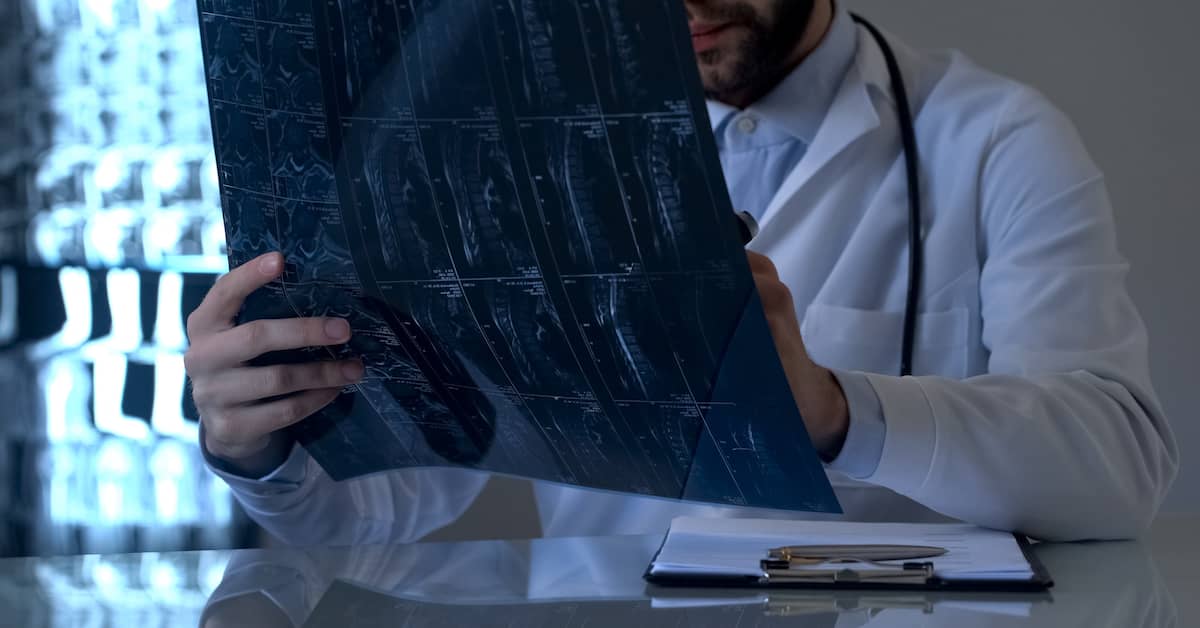
What Bodily Changes Can Occur After a Spinal Cord Injury?
Depending on its severity and location, a spinal cord injury can cause permanent changes in strength, sensation, and other bodily functions at and below the site of the injury. Complete spinal cord injuries are the most serious, and occur when damage to the spinal cord is so severe that it prevents the brain from sending signals to areas at and below the site of injury.
If the injury affects the lower parts of the spinal cord, it can result in paraplegia, which is characterized by paralysis below the waist. If the upper part of the spinal cord experiences a complete injury, it can result in quadriplegia (or tetraplegia), which is characterized by the loss of sensation and motor function in both the lower and upper body.
If you or a loved one suffered a spinal cord injury because of someone else’s negligence, it is in your best interests to speak with a Providence spinal cord injury attorney at Mandell, Boisclair & Mandell, Ltd. We have helped the wrongfully injured in Rhode Island for more than 45 years, and we are committed to helping our clients recover the justice and compensation they deserve.
Potential Changes to the Body After a Spinal Cord Injury
Every spinal cord injury is different, and any injury can affect the body in a variety of different ways.
After a spinal cord injury, paralysis is often the primary concern, and for good reason. A spinal cord injury can affect more than a victim’s sensation and mobility. According to the Mayo Clinic, other bodily symptoms can occur, depending on the nature and location of the injury. A spinal cord injury can affect a victim’s:
Muscle Tone
In some cases, spinal cord victims may experience one of two types of muscle tone problems:
- Flaccidity: Soft, limp muscles that lack muscle tone
- Spasticity: Abnormal muscle tightness due to prolonged muscle contraction
Bone Density
Low bone density, medically referred to as osteoporosis, can occur immediately after a spinal cord injury and progress for years after the injury. SCI victims are at increased risk for fractures below the level of injury.
Respiratory System
In cases where the chest and abdominal muscles are affected, spinal cord injuries can make it difficult for individuals to breathe and cough.
Those with cervical and thoracic spinal cord injuries may have an increased risk of pneumonia or other lung problems.
Circulatory Control
Circulatory problems, such as swelling and orthostatic hypotension (low blood pressure when you rise), can occur after a spinal cord injury. These circulation issues can increase the risk of developing blood clots. Autonomic dysreflexia, a condition characterized by a potentially life-threatening rise in blood pressure, is another risk associated with circulatory control.
Bladder and Bowel Control
The bladder continues to store urine from the kidneys after a spinal cord injury. However, a victim’s ability to control his or her bladder may be compromised. Control of bowel movements may be diminished.
The risk of urinary tract infections increases when changes in bladder control occur. Bladder control issues can also cause kidney or bladder stones and kidney infections.
Fitness and Wellness
Muscle atrophy and weight loss are common after spinal cord injuries. Limited mobility can result in a more sedentary lifestyle, placing SCI victims at increased risk of cardiovascular disease, obesity, and diabetes.
Sexual Health
The loss of muscle movement, sexual reflexes, and sense of touch often occurs after a spinal cord injury. The way these losses affect arousal and fertility depends on the level of injury and whether the injury is complete or incomplete.
Pain
The loss or limited use of certain muscle groups can lead to overuse of other muscle groups, resulting in joint and muscle pain. Nerve pain can manifest after a spinal cord injury
Pressure Sores
The loss of some or all skin sensations can occur after a spinal cord injury. This means that the skin cannot send messages to the brain when it is injured or experiences periods of prolonged pressure. This can make SCI victims more susceptible to pressure sores.
Call a Providence Spinal Cord Injury Attorney for Free
If someone else’s negligence caused you or a loved one to suffer a spinal cord injury, you deserve compensation for your physical, emotional, and financial losses. The spinal cord injury attorneys at Mandell, Boisclair & Mandell, Ltd. may be able to help. We understand the complexities of these difficult cases and we are committed to protecting the rights and best interests of our clients.
Contact our office today online or at (401) 273-8330 to speak with a spinal cord injury lawyer for free. We proudly serve Providence and other areas throughout Rhode Island.





























